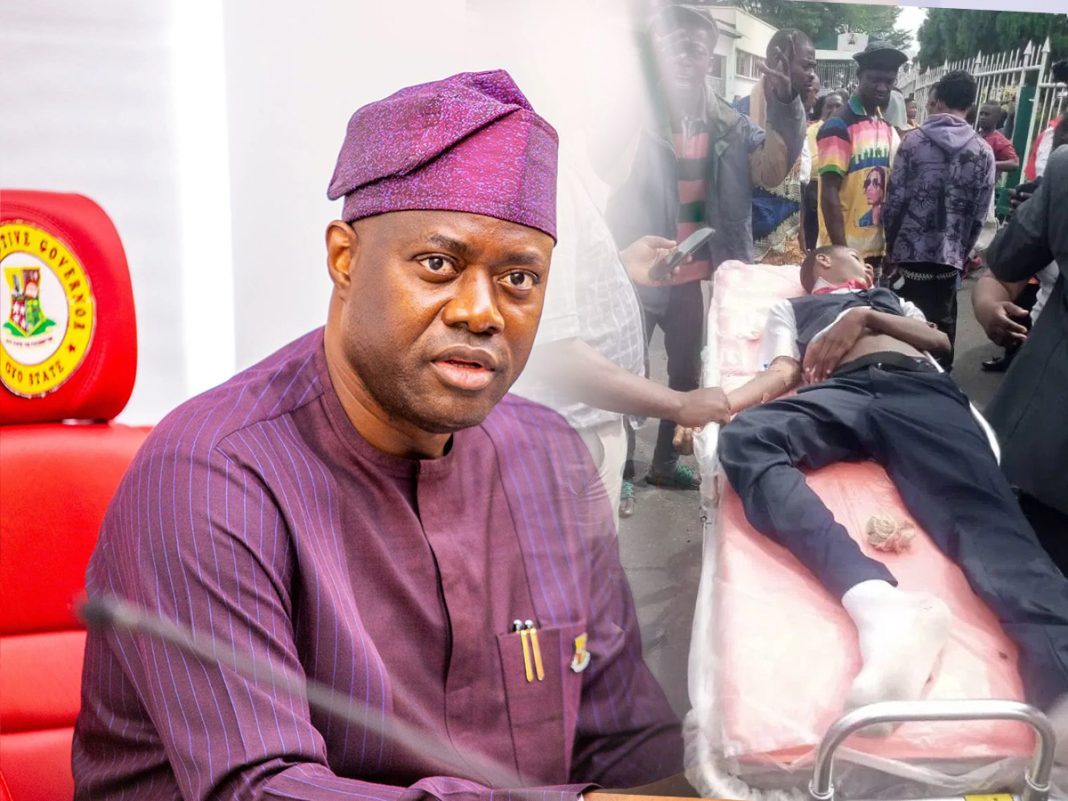Senate President Godswill Akpabio has made it clear that lawmakers in Nigeria are not elected to oppose the executive arm of government but to collaborate in developing laws and policies that support national progress. He made this statement in an upcoming feature documentary marking two years of President Bola Tinubu’s administration.
In the documentary, Akpabio highlighted the need for unity between the legislature and the executive, stating that antagonism only stalls national development. “When elected into the National Assembly, whether in the Senate or the House of Representatives, your constituents will not give you boxing gloves. It’s not a boxing tournament. You are there to work in a bipartisan manner for the interest of Nigeria,” he said.
Akpabio emphasized that the relationship between both arms of government has remained cordial, largely due to a mutual understanding and shared commitment to Nigeria’s growth. In defending the National Assembly’s cooperation with the executive, Akpabio stated, “If you spend all your energy fighting the Executive, who will work for Nigeria?”
The Senate President noted the uniqueness of the current administration, where the President, Vice President, and First Lady are all former senators. This, according to him, has fostered a deeper understanding and smoother relationship between the legislature and the executive.
In terms of legislative priorities, Akpabio disclosed that the National Assembly is working on a bill that would require government ministries, departments, and agencies (MDAs) to prioritize the procurement of locally assembled vehicles over imported ones. “We have started the bill for enacting legislation to enable us first purchase automobiles from Nigerian companies before thinking of importing them,” he said. “We lose billions of dollars annually importing vehicles and other items that can be produced locally.”
This legislative push is part of a broader effort to revive Nigeria’s manufacturing and industrial sectors. Akpabio lamented the decline of vital industries such as textiles, cotton, groundnut, and palm oil production, once key drivers of the Nigerian economy. “Over 50 textile companies have left Nigeria. The cotton industry collapsed. The groundnut industry collapsed. The palm oil industry collapsed. Look at countries like Malaysia that have leveraged palm oil to boost their economies,” he said.
Akpabio praised the Tinubu administration’s “Nigeria First” policy and called for full legislative backing to ensure its success. “It’s a fantastic initiative,” he said, noting that the National Assembly is collaborating with the Raw Materials Research and Development Council to formulate laws that will support domestic production and reduce import dependency.
Read Also: Budget Padding: NASS Inserts N6.93 Trillion Worth of Projects into 2025 Nigerian Budget – BudgIT
“We are going to make laws and produce bills that ensure almost every item we consume that can be produced in Nigeria is produced in Nigeria. Taking Nigeria First means bringing industries back to the country to serve our population of over 200 million,” he stated.
Akpabio also urged greater support for local entrepreneurs, stressing that even small-scale manufacturing ventures such as vinegar and bread production could thrive in Nigeria’s large consumer market. “Even if you produce vinegar and bag it well, it will fly. If you produce bread, you will be a millionaire considering the kind of population that we have,” he said.
As Akpabio defends legislature’s role in enabling national development, he dismissed claims that the National Assembly merely rubber-stamps executive decisions. He noted that the Assembly has rejected some presidential nominees and taken stands on issues where necessary. “People forget that we have made enemies by rejecting some of the nominees that the President sent to us. It’s not everything the President brings that he takes back the same way,” he added.
He explained that the Assembly’s role is to scrutinize, amend, and support policies that are in the national interest. “Our job is to make sure we cross the T’s and dot the I’s to assist the President in having the best for the Nigerian population.”
Akpabio also reaffirmed the Assembly’s commitment to prioritizing legislation that directly benefits the people. “This government is not a government of theory; it’s a government of action. So, for us in the National Assembly, we are very focused on pro-people legislation,” he said.
Among the legislative achievements he highlighted are the Student Loan Act (NELFUND), tax reform bills, and the Minimum Wage Bill, which he said are in line with the administration’s reform agenda. “We have done quite a lot in just two years. I assure Nigerians that more people-focused laws are coming: laws that will reduce hardship, open the economy, and empower young people,” he said.
From the legislative perspective, Akpabio said the National Assembly has worked diligently to align executive bills with the realities of Nigerians, ensuring swift passage for initiatives that promote national interest.
As Akpabio defends legislature’s role in national development, he assured citizens that the 10th National Assembly remains focused on delivering laws that will uplift the economy, promote local industries, and support the aspirations of the Nigerian people.




